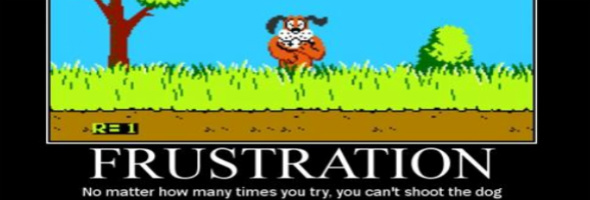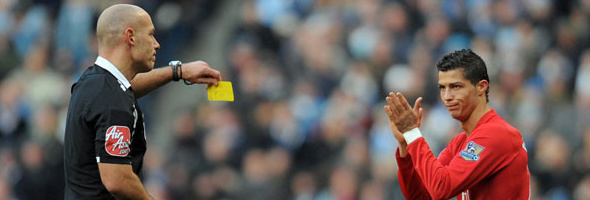
I’m back after my vacation and feeling very recharged, with that said I bring you today’s post!
This is a question every raid leader has to ask themselves at one point or another. How far can you push your raid before it’s too far? If you push your raiders too far, they drop like flies. Burn out increases at exponential rates and you find yourself actually losing ground. The problem is how does one gauge it? How does a raid leader find the line before they cross it? It’s not easy I can tell you that much. Most people I’ve talked to about this on twitter as well as just passing conversation all have different ideas on how you can find the line.
The topic came up a little over three weeks ago. Our main tank and guild leader (Death Knight) was in the middle of a horrible storm and was making sure his roof was still in tact, needless to say he wasn’t there for Vezax (and understandably so). This left us with our Second highest tank (Prot Paladin). In addition to this we were down a couple raiders due to vacations or family events. If you’ve read up on Vezax you’ll know he has an ability called Surge of Darkness. A Death Knight is able to blow cooldowns every time it’s being cast (part of the reason it’s DK tanking is getting a slight nerf) and makes the ability moot. The other tanks don’t have the luxury of having a cooldown available for every surge. One strategy is to kite him around for the 10 seconds the ability is active, but we like to reduce movement on boss fights as much as we possibly can. After a couple wipes we developed an idea for a cooldown rotation involving the Pally’s CDs, two Guardian Spirits and Pain Supression. The night was filled with all sorts of Murphy’s law. Everything that could go wrong did. After every attempt though I kept trying to push the raid forward. This is an easy fight all things considered, we’ve killed him before multiple times and 90% of what was going wrong was outside of control. No reason to quit right? After 12 attempts we finally kill him again.
After the raid I was talking to one of our warlocks, he commented that the number of attempts we made almost broke him. So I asked him if he though I was pushing the raid too far. He replied with “one more and probably”. The week after we had a similar issue with Thorim. Murphy came out and smacked us around just a little bit with random DC’s and bugged mobs, and after several attempts we were all feeling worn down and called it a night after we toppled him.
As a raid leader there is nothing more frustrating then wiping on farm content, be it through player error or laws of the universe conspiring against you. Those of you who follow me on Twitter probably remember many of my in between wipe comments like “I think I need to kick a puppy”. Being in charge, even just in part of a raid can be very frustrating. When the event fails it’s hard not to take it upon yourself and feel like you failed, or let the guild down. The burden of responsibility comes with a certain amount of guilt and most raid leaders will tell you as much. Sometimes we walk away in defeat and try again later, other times we push harder to meet the goal. Raid leaders have to know though, when it’s time to lick your wounds and come back later.
If they don’t learn when it’s time to call it they run the risk of increasing raider burn out and doing more harm then good to the raid overall. So what do we look for?
Performance
Watching your raids performance is one of the ways a raid leader can tell if they are pushing the raid too far. Are your top DPS getting lower on the charts? Is the raid missing easy interrupts? Are people who normally don’t fail at void zones failing at void zones? Is there an overall increase in the frequency of easily prevented deaths?
When you see your raid’s performance start to dip you have to stop and ask yourself, why. Is it because of bugs or lag? Bad luck with connections and addons? Is it just too late in the evening? If you find raid performance dipping with no good reason or outside cause, it might be time to call it a last attempt and then sleep it off.
Morale and Attitude
Another good indicator is the general mood of the raid. Is everyone still having a good time? Is everyone talkative on vent? Is everyone moping about or seemingly disinterested in the raid? People seem like they are ready to go to bed? If your morale in the raid is slipping, you bet performance is going down hill. Also when morale slips, tension between raiders can rise as well. Sometimes this can lead to confrontation if you’re not careful.
I have a raider who I adore, she’s one of my favorite people in the world. Every now and then I’ll get a tell from her with a statement something like “this isn’t going well is it?” , “grrrrrrr what are we doing different tonight?!?”, “I think I need to lay down =(“. It’s usually at this point I know it’s time to call it a night, or getting there very quickly. She’s usually very chipper and gives it her all. But when I get one of those tells I know we’re going to be winding down soon as morale is starting to take a turn south.
Raider input
This is a big one for me at least. I listen to my raiders. If a raider comes to me and says that it’s just too much, I listen. I expect my raiders to be vocal. If there is a problem or concern I expect that they will tell me. I know my guild leader expects the same as well. As a raider you should be able to go to the raid officers and let them know when you feel yourself slipping for whatever reason. Your raid leaders aren’t psychic (even if we are using Big Brother) and sometimes the only way we know what’s going on is when you tell us. We are after all only human so help us out when you can.
That’s it for today.
Until next time, Happy Healing.

Image courtesy of http://images.paraorkut.com





